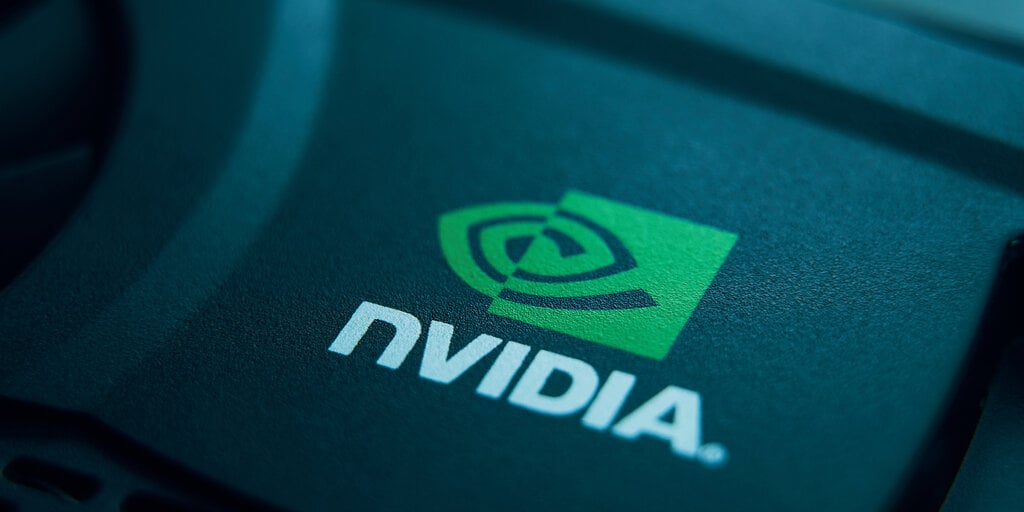Nvidia stock (NASDAQ:NVDA) rose 8% to $728.35 from $674.72 during after-hours trading late Wednesday, following the company’s better-than-anticipated fourth-quarter earnings report—headlined by massive growth in artificial intelligence.
The hardware developer reported that its $22.1 billion revenue—logged in the fourth quarter ending January 28, 2024—was 22% higher than the previous quarter and 265% higher than the year before. Market watchers were expecting 208% growth ahead of the earnings report, noted Reuters.
“Accelerated computing and generative AI have hit the tipping point,” Nvidia founder and CEO Jensen Huang said in the report. “Demand is surging worldwide across companies, industries, and nations.”
Following Nvidia’s earnings news, other AI-associated stock prices surged, including Super Micro Computer rising 6%, Advanced Micro Devices by 3%, and chip manufacturer Broadcom by 2%, Reuters reported.
Google parent company Alphabet (NASDAQ:GOOGL) stock rose 0.98% in after-hours to $143.95, with Microsoft (NASDAQ:MSFT) stock rising 0.65% in after-hours trading to $404.90.
AI-related tokens and memecoins were also swept up in the strong corporate showing, rising in price after the Nvidia report.
The Fetch.Ai token FET is currently trading at $1.13, up 3.49%; The SingularityNET AGIX token is trading at $0.66, up 13.30%, and Optimus AI OPTI is trading at $0.32, up 0.70% in the last hour according to CoinMarketCap.
The Sora token, inspired by but unrelated to OpenAI’s buzzy new AI video generator, also surged 9.22% to $0.000000368 in the last hour.
NVIDIA revenue set new records in its latest quarter, fueled by surging demand for its graphics processing units (GPUs)—largely to power artificial intelligence and generative AI models.
The Silicon Valley tech firm reported total revenue of $13.51 billion in its fiscal second quarter ending July 30,representing a 101% increase versus the same period last year. Revenue jumped 88% over the previous quarter.
“A new computing era has begun,” NVIDIA founder and CEO Jensen Huang said in a statement….
Last year, Nvidia reported a total revenue of $13.5 billion in its fiscal second quarter, even then representing a growth of 101% increase compared to the same quarter in 2022.
“A new computing era has begun,” Nvidia founder and CEO Jensen Huang said at the time. “Companies worldwide are transitioning from general-purpose to accelerated computing and generative AI.”
Contributing to its record earnings report, Nvidia said, was an increase in demand for generative AI, faster data processing, training, and inference for cloud service providers, enterprise software firms, and consumer internet companies.
Nvidia’s hardware section also saw a boost from AI as developers turned to the company’s GPUs to power their projects.
“NVIDIA RTX, introduced less than six years ago, is now a massive PC platform for generative AI, enjoyed by 100 million gamers and creators,” Huang said. “The year ahead will bring major new product cycles with exceptional innovations to help propel our industry forward.”
That high demand is tempered somewhat due to current geopolitical tensions between China and the United States. Nvidia released a pared-down version of its RTX 4090 GPU, the RTX 4090D, to ship to Chinese markets.
Data center revenue, Nvidia said, was $18.4 billion for the quarter, an increase of 409% from the previous year.
In the gaming sector, Nvidia said annual revenue grew 15% to $10.4 billion, driven by the launch of the GeForce RTX 40 Super Series GPUs, customizable chatbots, and microservices for the Avatar Cloud Engine the company unveiled last year.
In May, during the annual Computex trade show, Nvidia showcased a demo for the Avatar Cloud Engine (ACE) for next-generation games. The ACE demo showed a detailed cyberpunk-style restaurant and the NPC behind the bar that Huang said could understand and interact with gamers in a “resonable way.”
“This is the future of video games,” Nvidia CEO Jensen Huang told the audience. “Not only will AI contribute to the rendering and the synthesis of the environment, AI will also animate the characters.”
Edited by Ryan Ozawa.
